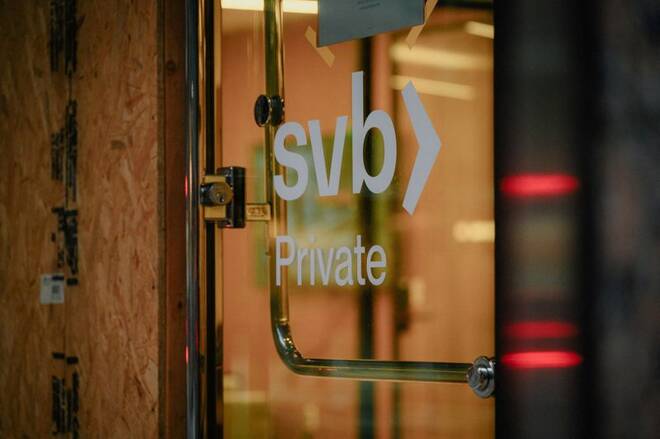Advertisement
Advertisement
Analysis-SVB’s climate tech clients face humbling funding questions
By:
By Ross Kerber and Isla Binnie BOSTON / NEW YORK (Reuters) - For years Silicon Valley Bank was a lender of choice for climate technology startups keen to tap specialised support for early-stage companies. Post its collapse, they may face higher finance costs wherever they next choose to bank.
By Ross Kerber and Isla Binnie
BOSTON / NEW YORK (Reuters) – For years Silicon Valley Bank was a lender of choice for climate technology startups keen to tap specialised support for early-stage companies. Post its collapse, they may face higher finance costs wherever they next choose to bank.
The meltdown of the 40-year-old lender triggered days of stressful phone calls for many types of technology firms as they lined up contingency plans for funds, although some calm returned after U.S. authorities stepped in to insure their deposits.
For businesses with an environmental mission, the big question now is whether investor demand to address climate change will continue to help them secure attractive terms, or if less start-up friendly lenders prove tougher partners as the broader banking system shudders.
At the start of 2022, SVB pledged to provide at least $5 billion in financing by 2027 to support sustainability efforts in industries including green buildings, renewable energy and water technology – seen as growth markets as the world shifts away from fossil fuels.
A number of startup executives and their VC backers, including Michael Sonnenfeldt, Chairman of MUUS Climate Partners, said the bank’s collapse could lead to more difficult borrowing terms for their young industry.
The chillier financing climes, already in play as interest rates rose, would be particularly acute for companies looking to spend big as they scale, for example on building infrastructure.
Equity valuations could be impaired between 5% to 50% over the coming year, Sonnenfeldt said, but the wide range shows the uncertainty of the situation: “We don’t know how bad it will, but it won’t be good,” he said.
Jane Melia, CEO of MUUS portfolio company Harvest Thermal, which makes low-energy heating systems and moved funds out of SVB on March 9, said she took heart from policy actions such as the U.S. Inflation Reduction Act, which would direct billions of dollars in subsidies to green energy.
“Very near-term, people are probably shaken… (although) I’m not worried about climate tech as a whole. Fundamentally this is a transition that’s only going one way,” she said.
Despite SVB’s demise knocking the value of banks globally, particularly European lender Credit Suisse, U.N. climate envoy Mark Carney said he, too, did not expect a “material” impact on climate tech funding.
However, finance firm Alantra said it expects the bank sector’s challenges to prompt venture capital lenders to focus more on quality firms that can scale and be capital efficient.
“At a minimum, this will likely drive continued tightening of investments and a push to have their portfolio companies cut (cash) burn,” it said in a note.
Mona Dajani, partner at law firm Shearman and Sterling, said most of her clean energy clients either banked with SVB or faced some other impact from its troubles. SVB “cultivated a reputation as being very friendly to clean energy… they were willing to underwrite more risk,” she said.
While rival banks now will likely pick up the slack, smaller and less-capitalized segments of clean energy will face stiffer terms such as residential or community solar projects, she said.
Climate tech took in more than a quarter of all venture money invested during the 12 months to end-September, but it was down 30% to $52 billion over the first three quarters of 2022 compared to the same period in 2021, consultants PwC said, with the number of early-stage deals falling.
TRAINS, RADIO, SOLAR
Cary Krosinsky, an academic and advisor on climate investing to several large asset managers, said the banking crisis will make it harder for companies to sustain recent valuations.
“I’ve been waiting for a bit of a shakeout. With any new sector there’s a pattern. It was true for railroads, radio, and computers,” he said. “Not all the companies are going to make it and now that’s happening to climate companies.”
Dan Goldman, co-founder and managing partner of climate startup investor Clean Energy Ventures, said SVB had been a “prolific lender” to its portfolio companies, and the VC had “been on speed dial” to them as events unfolded.
“Our team is continuing to work with impacted companies within our portfolio to ensure the leadership teams have answers to immediate challenges like payroll, debt facilities and long-term capital markets strategy.”
For many in the sector, the troubles of a bank that pitched itself as one of their own, will prove humbling.
Jonathan Levine, CEO of Folia Materials Inc in Boston, which makes paper products for applications like water purification, said SVB’s collapse showed its tech-heavy client base they weren’t special. He said it took him nearly a week to wire money out of SVB, nearly missing payroll for his five-person startup.
“All of us are just small businesses with money there. It doesn’t matter if you’re a roofer or a janitor service.”
(Reporting by Ross Kerber in Boston and by Isla Binnie in New York. Additional reporting by Jane Lee and by Laila Kearney. Editing by Simon Jessop and Nick Zieminski)
About the Author
Reuterscontributor
Reuters, the news and media division of Thomson Reuters, is the world’s largest international multimedia news provider reaching more than one billion people every day. Reuters provides trusted business, financial, national, and international news to professionals via Thomson Reuters desktops, the world's media organizations, and directly to consumers at Reuters.com and via Reuters TV. Learn more about Thomson Reuters products:
Advertisement
